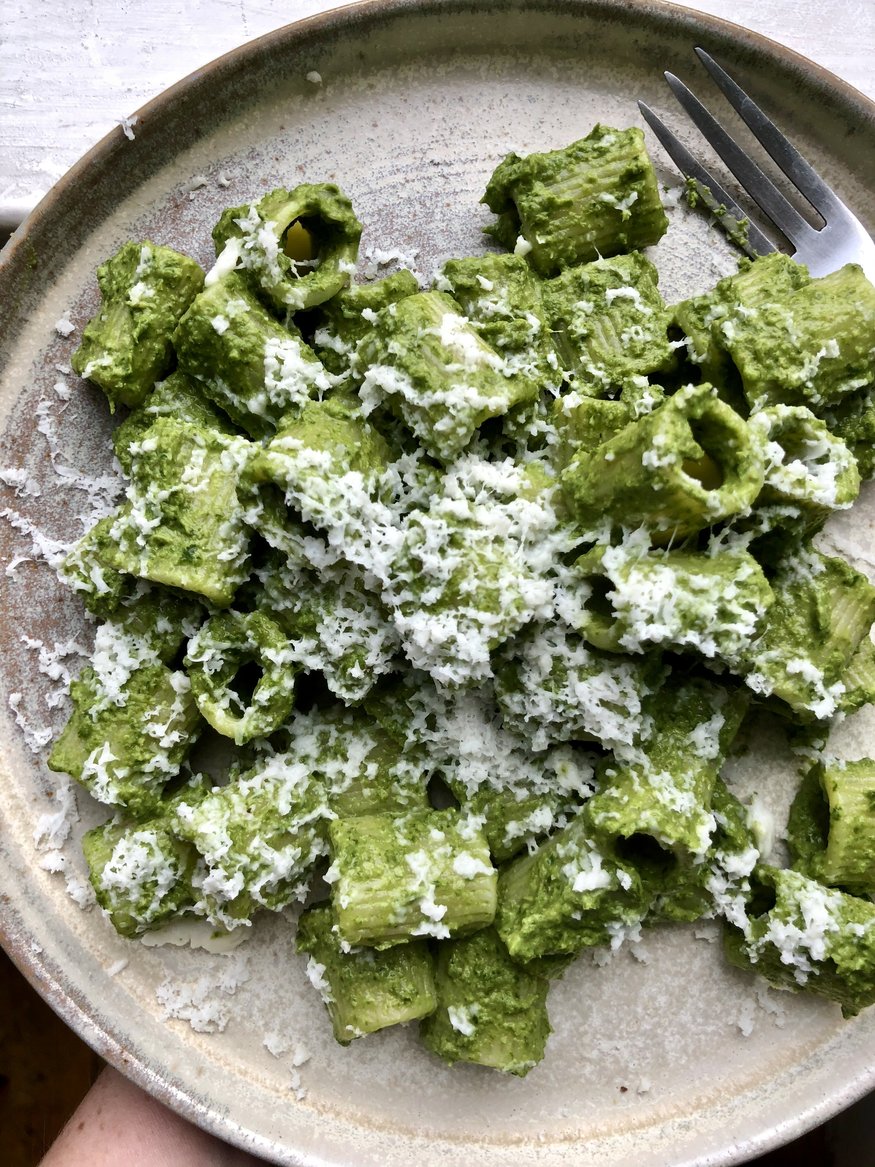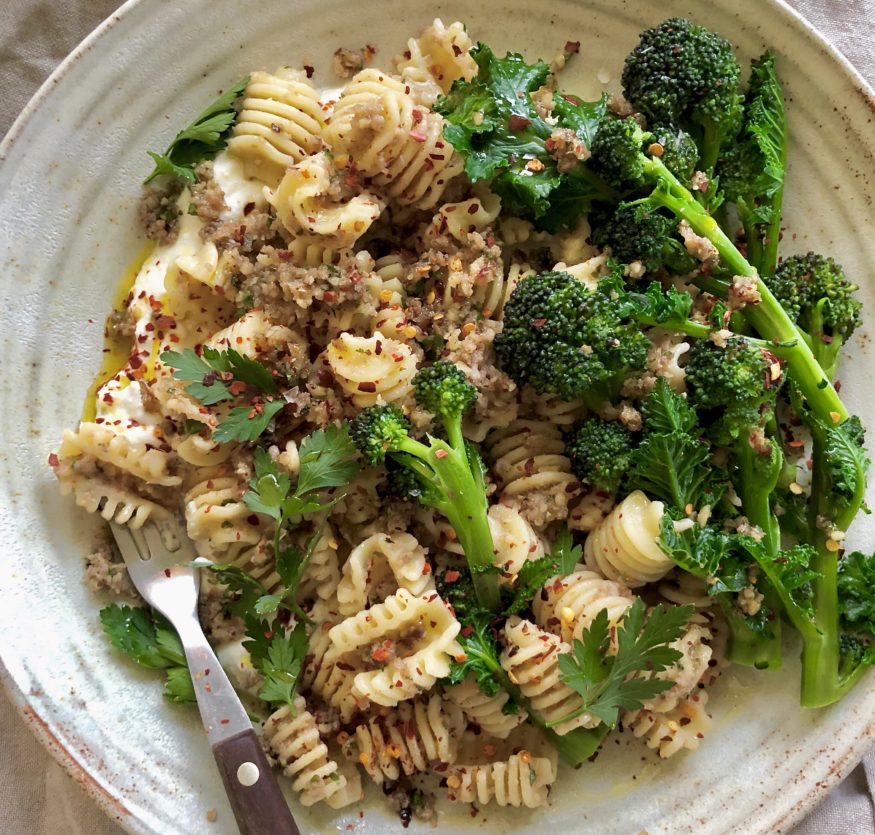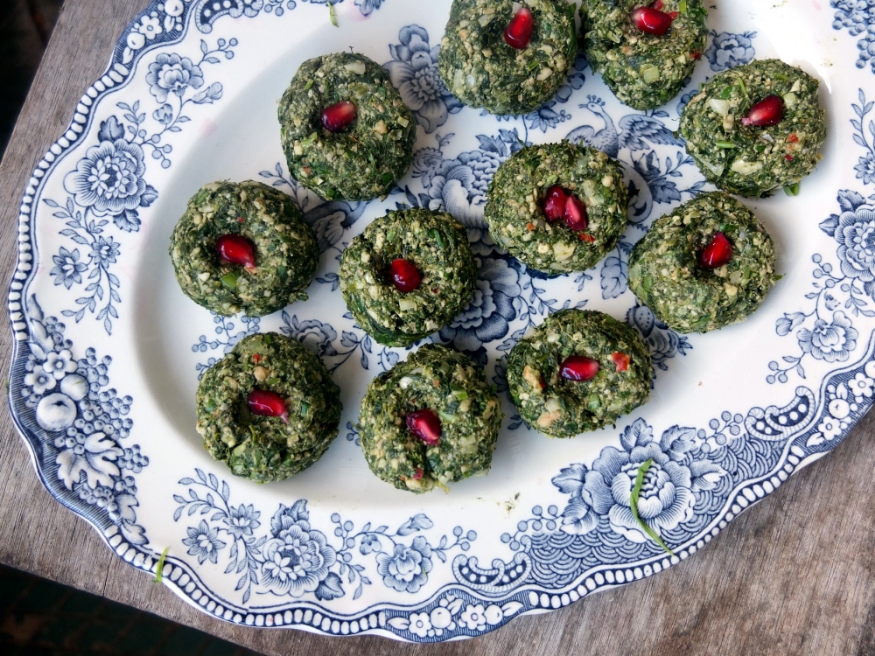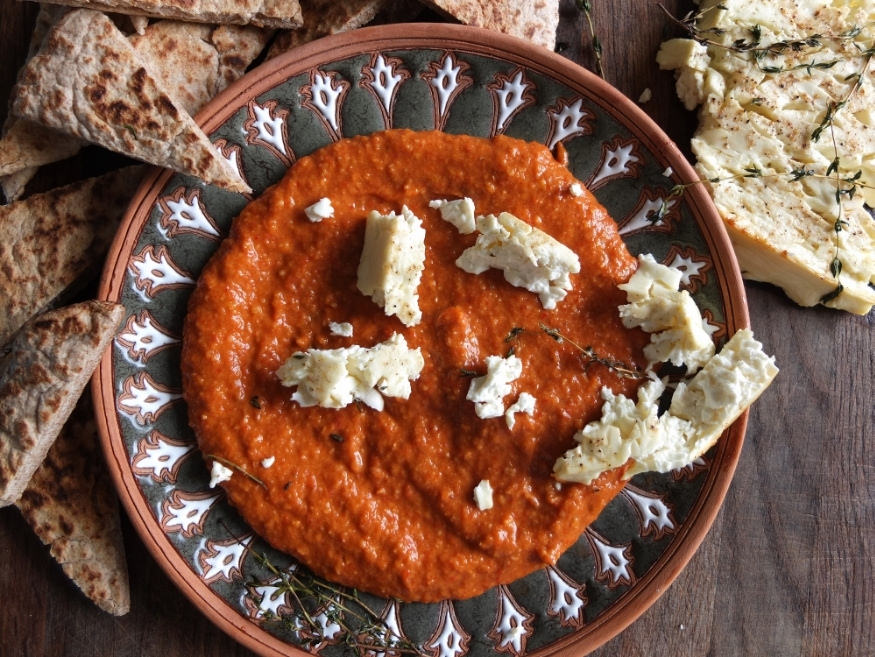
There’s only so many times a woman can see kale pasta on Instagram before she is compelled to make it. I think this recipe trend has come to us from the US, like avocado toast and using Brussels sprouts in literally everything. I predict the broccoli ‘grilled cheese’ will soon take over. You wait.
Part of kale pasta’s appeal is the wacky colour but it also reflects the fact that we’ve swung from despising and mistreating cruciferous veg to appreciating their bold, iron-rich flavour. I’m also desperate for greens at this time of year when so much focus has been on sweet gnarly roots like carrots and parsnips.
Spring is coming and this is the kind of cheerful bowl that bridges a seasonal gap. I wanted to garnish it with salted ricotta but that’s quite hard to find around these parts so I subbed in grated halloumi which did a pretty fine job. You’re likely to want about 50% more of it than you see in this photo. At least, I did.
Rigatoni with Kale, Walnuts and Halloumi Recipe
(makes enough for 500g pasta)
250g kale, ribs removed
3 cloves garlic
75g Parmesan, grated
70g walnuts
4 tablespoons extra virgin olive oil
4 tablespoons lemon juice
Black pepper
Halloumi, to garnish
Bring a large pan of water to a boil and put the kale in it. Bring back to the boil, cook for 30 seconds, then drain.
Toast the walnuts in a dry pan, moving them around over medium heat until they smell delicious. Take care not to burn them.
Add the kale to a blender with the garlic, Parmesan, walnuts, olive oil and lemon juice. Add lots of black pepper and check for seasoning – you might want a bit of salt but bear in mind the halloumi will be salty.
Serve stirred through hot pasta with a splash of the pasta water for silkiness and top with grated halloumi.


